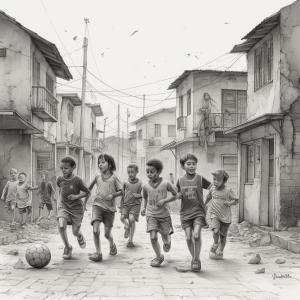Everybody drinks coffee! As a matter of fact, I’ve just polished off one of my favourite brews, the skinny cappuccino. No sugar of course.
Most parents live on the stuff and cannot start the day without it.
Great for that instant burst of energy and the endurance needed to chase after the little ones.
So what’s the secret to coffee?
Well, unless you’ve been living on the moon, coffee’s key ingredient is Caffeine. Caffeine is known to enhance endurance and is guilty of keeping most adults up in the middle of the night.
There is also growing evidence that coffee can also improve soccer performance.
A group of scientists from New Zealand have studied the effects of caffeine on soccer players.
The mad men wearing the white coats set out to investigate the effects of caffeine in a performance test that stimulated the various demands of soccer.
The Project
22 professional (now we’re interested) male soccer players were used for the experiment.
11 players ingested caffeine (6mg per kg of body mass) and the other 11 ingested a placebo (dextrose) 60 minutes before performing the various tests.
After a week of testing, the players then changed their meds. Caffeinated players received the placebo and vice versa. * The players were not aware of the substance they were ingesting*
The Tests
Each test consisted of 7 circuits in each of two 40-minute halves with a 10-minute rest in the middle to simulate match conditions.
Measurements that were taken included
- 2 Straight-line sprints
- 3 agility sprints
- Power generation in 2 consecutive drives
- Accuracy for passing balls rapidly.
As a former science student myself, there is nothing more exiting than significant results.
The results for all drills (except for second drive power) were so positive that even the scientists raised an eyebrow.
The Results
(while picturing nerds in white coats punching the air and giving group hugs) were
- Sprint Speeds increased over all the 5 sprints ranging from 1% for 20m sprinting speed to 2.9% for tackle sprint speed.
- First drive power- 5% improvement
- Second Drive power -1.2% (negative) reduction
- Passing accuracy- wait for it, 9.6% improvement.
Looking over the findings the scientists could be heard giggling over the 10% finding like they just discovered a new dinosaur.
From the horses mouth,
“The largest and possibly most exiting new finding with caffeine was a 10% improvement in the ability to pass balls accurately while pressured to pass the ball rapidly”
WARNING!
Just a friendly warning before we all overdose on caffeine. The mechanisms behind caffeine’s apparent ergogenic effects are still not understood. However, the Kiwi’s believe it works on the central nervous system to reduce fatigue and permit a higher level of motor drive and motor skills throughout matches.
The above information was found in a medical science journal and does not construe medical advice or even soccer advice. Medical advice can only be given by a doctor, which I’m not, so this information is only intended for entertainment purposes.
Although, 10% increase is a huge result, don’t you think?
“May the winds of destiny blow you to the stars.”



I wouldn’t say I expected the results but I also won’t be suprised if coffee has an impact on soccer performance. Caffeine is itself a stimulant but most of its other effects are still unknown. But I wouldn’t think one experiment like this will drive soccer teams to encourage increased caffeine intake.